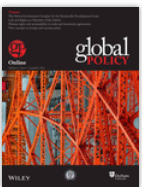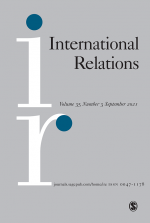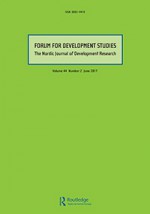Problem-Solving by Low-Authority International Organizations: ECOWAS' COVID-19 Response

This is an open-access article.
Dominant theories stipulate that high levels of authority are a prerequisite for effective problem-solving by international organizations (IOs). How, then, can we explain that African health organizations possess relatively low levels of authority, yet their response to COVID-19 has been touted as a remarkable success? In this article, we explain how low-authority IOs can engage in effective problem-solving. By rethinking the conventional zero-sum relation between national sovereignty and an IO's problem-solving potential, we develop a novel framework that allows us to analyze diverse cooperation logics pursued by various organizational actors within an IO. Applying this framework to the response of ECOWAS and its sub-agency, the West African Health Organization (WAHO), to the COVID-19 pandemic reveals that problem-solving cooperation dominated over symbolic and autonomy-oriented cooperation logics. This prevalence of problem-solving did not derive from ECOWAS' authority over states, but emerged because its member states saw it as expedient to address these issues through the organization. Our analysis shows that low-authority IOs can problem-solve if member states consider them to be transmitters instead of constraints of national sovereignty, that is, as suppliers of organizational services that enhance state capacities.







